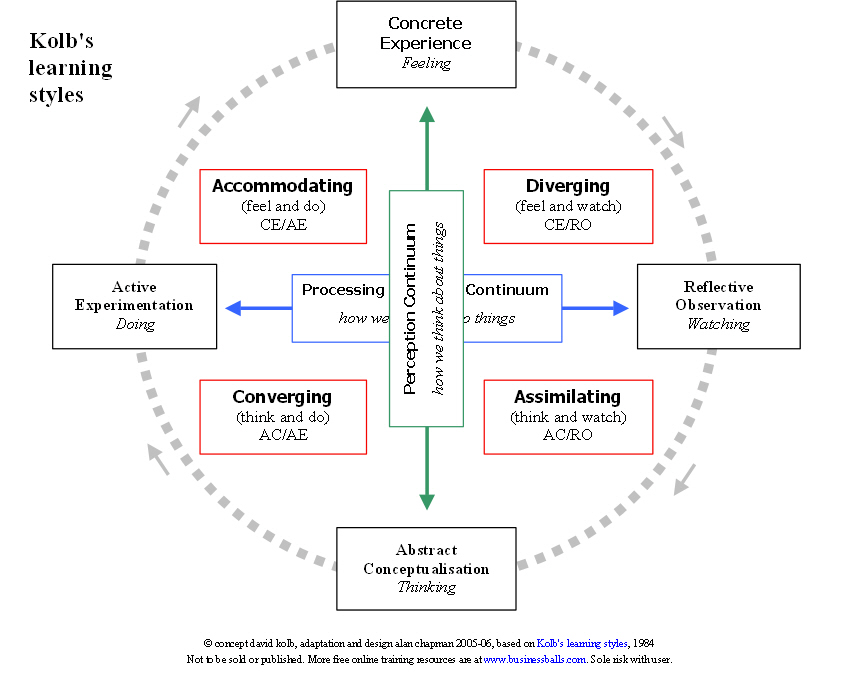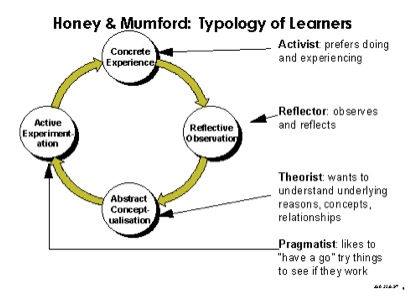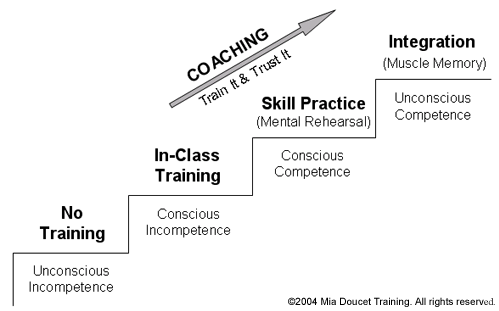I was walking on the beach in Vietnam a couple of weeks ago with a friend, and just by coincidence we started talking about how people take different routes for their future. Normally your chosen occupation is something you are good at but also interested in. I can remember watching a dance film when I was younger and I can honestly say I didn’t sleep for days after as I just mesmerized at what I saw. I suppose even from a young age (without meaning to) you are reflecting on things you see, hear and that is how we learn. Then as I got older (thank god) I discovered that I was a natural dancer and that was the path I wanted to go down, however many of my friends took completely different routes. Howard Gardner says that “people are intelligent in a number of ways” I feel this is so true. I believe my intelligence is a kinesthetic and also a musical kind and how I found that out was due to my experience.
I am an experienced dance teacher and each day I expand my knowledge due to reflecting on my lessons. Reflection has been a substantial part of my learning and each day I modify my teaching to improve my work. I have made many mistakes at work, but I believe if I didn’t make those errors and reflect upon them then I wouldn’t discover new and better techniques. “Knowledge is not the same as morality, but we need to understand if we are to avoid past mistakes and move in productive directions. An important part of that understanding is knowing who we are and what we can do...” (Howard Gardner 1999: 180-181) Gardner also talks about the idea of Visual, Auditory and kinesthetic learners. I find it hard to concentrate and engage if I am watching something or listening to someone, so I most definitely learn better kinesthetically.
Margaret H'Doubler wrote and spoke about kinaesthetic learning in the 1940s. She defined kinaesthetic learning as the human's body's ability to express itself through movement and dance. I find this very interesting as I am a dancer and I find it easier to learn carrying out a physical activity.
Yesterday I watched a dance class (I was sitting down) and I felt uncomfortable. I was learning very little and I didn’t feel connected to what was happening. I decided to join in and automatically I felt at ease and I gained something from the class. I understand that I am not one type of learner but clearly find I have a predominantly kinesthetic learning style. Tomorrow I have decided to try and use Visual and Auditory learners and I will reflect on how I develop and what I gain from using these styles.
In the arts you are constantly experimenting with ideas and that again is how you learn. I can remember at college me and my tutor was trying to find the best style of singing that suited my voice the best. After we went through Jazz, Rock, Motown etc we decided Musical theatre was my flair! We only found this out by experimental learning and reflecting on what I studied.
John Dewey believes that “if people had full experience and therefore full engagement with their lives they would be better able to be part of society, fully engage with democracy and spend time solving worldly problems” I have faith in this as I feel the more you engage and reflect upon your everyday existence the more you can be involved with society as you have learnt from experience. I read the other day “Thinking is the method of intelligent learning, of learning that employs and rewards the mind”.
The learning cycle
Kolbs learning cycle is very helpful and dynamic as it offers both a way to understand individual people's different learning styles, and also an explanation of a cycle of experiential learning that applies to us all.

Kolb and Fry (1975) argue that the learning cycle can begin at any one of the four points - and that it should really be approached as a continuous spiral. However, it is suggested that the learning process often begins with a person carrying out a particular action and then seeing the effect of the action in this situation.
I watched some video footage of David Kolb explaining experimental learning which I found very interesting.
In the interview David Kolb talks about William James and what he said-
He said that as human beings all we have is our experience, and all knowledge begins in our experience, and the way we know something is true, is that it comes back and proves true in our experience, so experiential learning puts learning in the centre of a learning process. As a learner it’s my experience that guides how I learn and says when I have learnt something.
Its all about experience!
I found this very valuable as you do only no when something is true when you have experienced it. You can only learn when you have experienced it. You are in control of your learning; we are able to create our own experiences. We are at the centre of a learning process, we decide how and when. Everyone is individual; everyone can enter the cycle in a different point depending on what type of learner you are. I really like the “learning cycle” as it’s an organized way of learning!
I feel I enter the cycle at the abstract conceptualization because I am a “thinker” my point of learning something new is when I “work it out in my head first”. I talked to my friend Elizabeth and she said she enters the learning cycle at active experimentation as she believes that trying out what she has learnt is effective. I find it intriguing that everyone goes through all 4 modes of learning but everyone enters the dynamic process at a different point. David Kolb’s opinion is “it’s not the teacher who is the centre, it’s the learner” the focus should be on the learner as it’s the learner who is reflecting on the experience and they need to have the understanding of their observations so they can imply it to their work.
I am constantly reviewing all my classes, auditions and jobs. I really like Peter Honey and Alan Mumford’s four basic learning styles so below I have reflected upon one of my classes (where there was a problem) using this theory.
Having an experience-I get to the school and I realize the class has moved to a different hall. My class is big and can be difficult so all the children would struggle for space.
Reviewing the experience- I notice that the children are moaning, not really paying attention. So I decide that instead of dance we will play games instead. I try and think on my feet but I feel nervous as I feel unprepared.
Concluding from the experience- I start to reflect and I learn that feeling unprepared makes me feel weak. The class isn’t going well and I now realize that I should have voiced that we need a bigger space.
Planning the next steps- I e-mailed the school and said it won’t be possible to do a dance class again in that space. I learnt that smaller rooms could arise again so I need to be prepared with games or a more combined dance if this happened again.
Donald Schon introduced the idea of reflection-in-action, and reflection on-action. I started teaching when I was 16 and panicked if a class was struggling to learn a routine. I would teach slower but I would never change a routine on the spot. After teaching for 7 years I constantly reflect-in-action, I respond to what I see and feel and change it if I need to. I agree with Robert Kottcamp in that reflection-in-action is harder to achieve however the more experience you have the more effortless it becomes. “The actor must simultaneously attend to performing the action and observe and analyze his or her action, as if from an external perspective. Further, in reflection- in- action the actor is the sole collector of data on the event” I guess whilst doing the action you have to observe, reflect, conclude and try out all in one! Reflection-in-action is continually used in our profession as dancers we are use to adapting in seconds. If you were a writer you would use reflection-on-action as you can always go back and source other information at a much slower pace.
Muscle memory-in relation to Twyla Tharp’s explanation-
When I took my associate to become a qualified dance teacher a big section was on muscle memory. It really is amazing that our bodies retain so much information and can remember movements for a long time. Sometimes when I do a dance I can be thinking about what I am having for dinner as my body will naturally do the steps. I was doing some research on this topic and I found this quote on wise geek which I found attention-grabbing “Muscle memory can best be described as a type of movement with which the muscles become familiar over time. For instance, newborns don’t have muscle memory for activities like crawling, scooting or walking. The only way for the muscles to become accustomed to these activities is for the baby to learn how to do these things and then practice them with a great deal of trial and error. Gradually, as the baby becomes a skilled walker, he falls less, is able to balance, and finally is able to incorporate other activities into his life such as running”http://www.wisegeek.com/what-is-muscle-memory.htm I like this extract as it gets you thinking “How do I know how to stand and walk” it’s actually your whole body that is involved, with muscle co-ordination and repetition. We don’t tell the body to walk; the body just knows how to do it, largely because neurons communicate with the muscles and say, “walk now.” According to neuroscientists, it’s the movements that become thoroughly mapped in the brain, creating a shorthand between thinking and doing. When I dance I don’t think about each movement individually, it’s the remembrance in our muscles that enables us to do the movements subconsciously. Muscle memory allows us to perform tasks without the same conscious thought that was required the first time we did it.
References
Kolb's learning experience-http://www.learningfromexperience.com/- Accessed- 18/11/10
Howard Gardner - Reflective Practices Reader-2010/11- http://libguides.mdx.ac.uk/data/files4/133687/Reflective%20Practices%20Reader.pdf- Accessed- 18/11/10
John Dewey- Reflective Practices Reader-2010/11- http://libguides.mdx.ac.uk/data/files4/133687/Reflective%20Practices%20Reader.pdf
Accessed 18/11/10
Wisegeek-http://www.wisegeek.com/what-is-muscle-memory.htm Accessed 18/11/10
Robert Kottcamp- Reflective Practices Reader-2010/11-http://libguides.mdx.ac.uk/data/files4/133687/Reflective%20Practices%20Reader.pdf-Accesed 18/11/10

